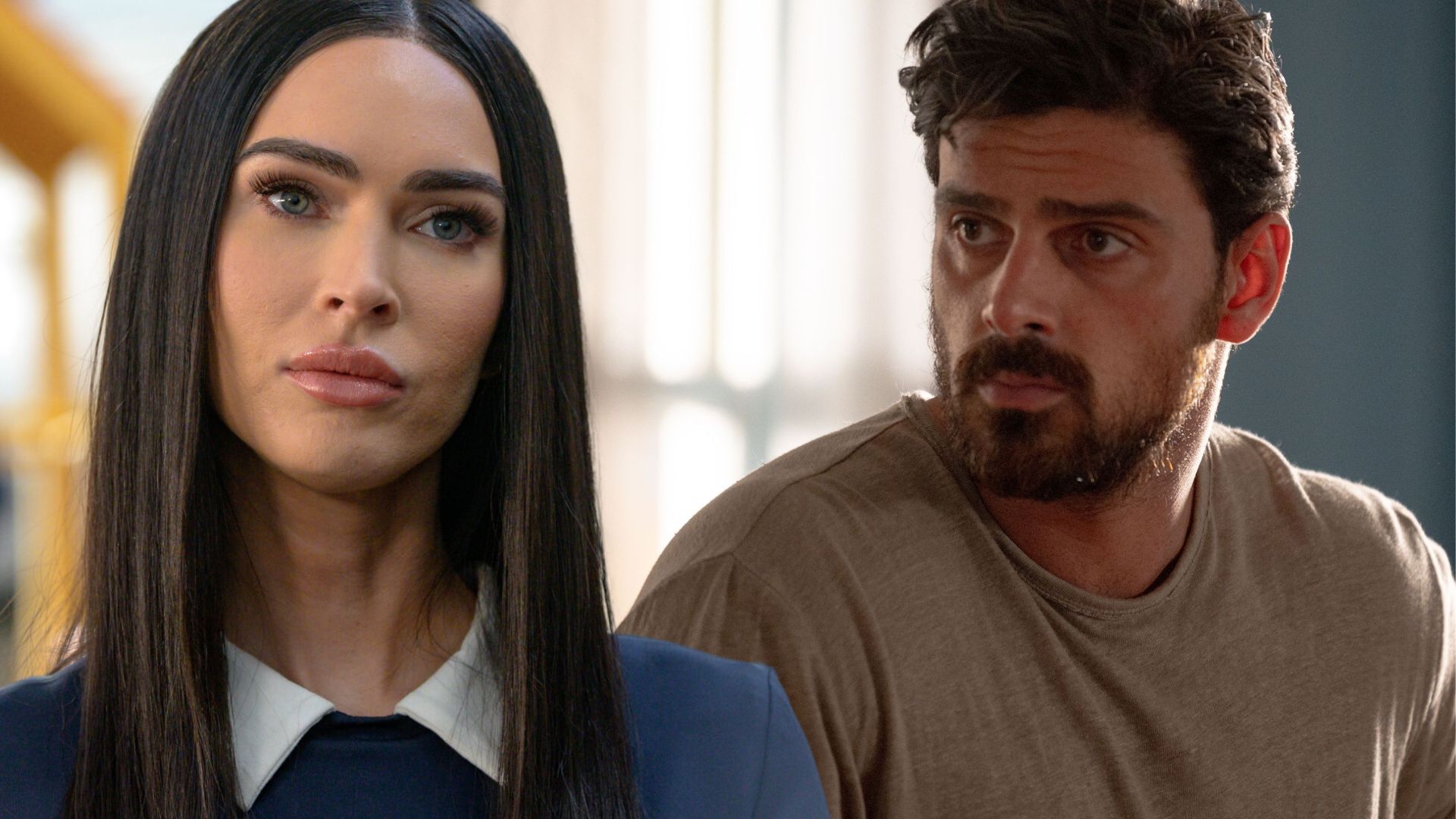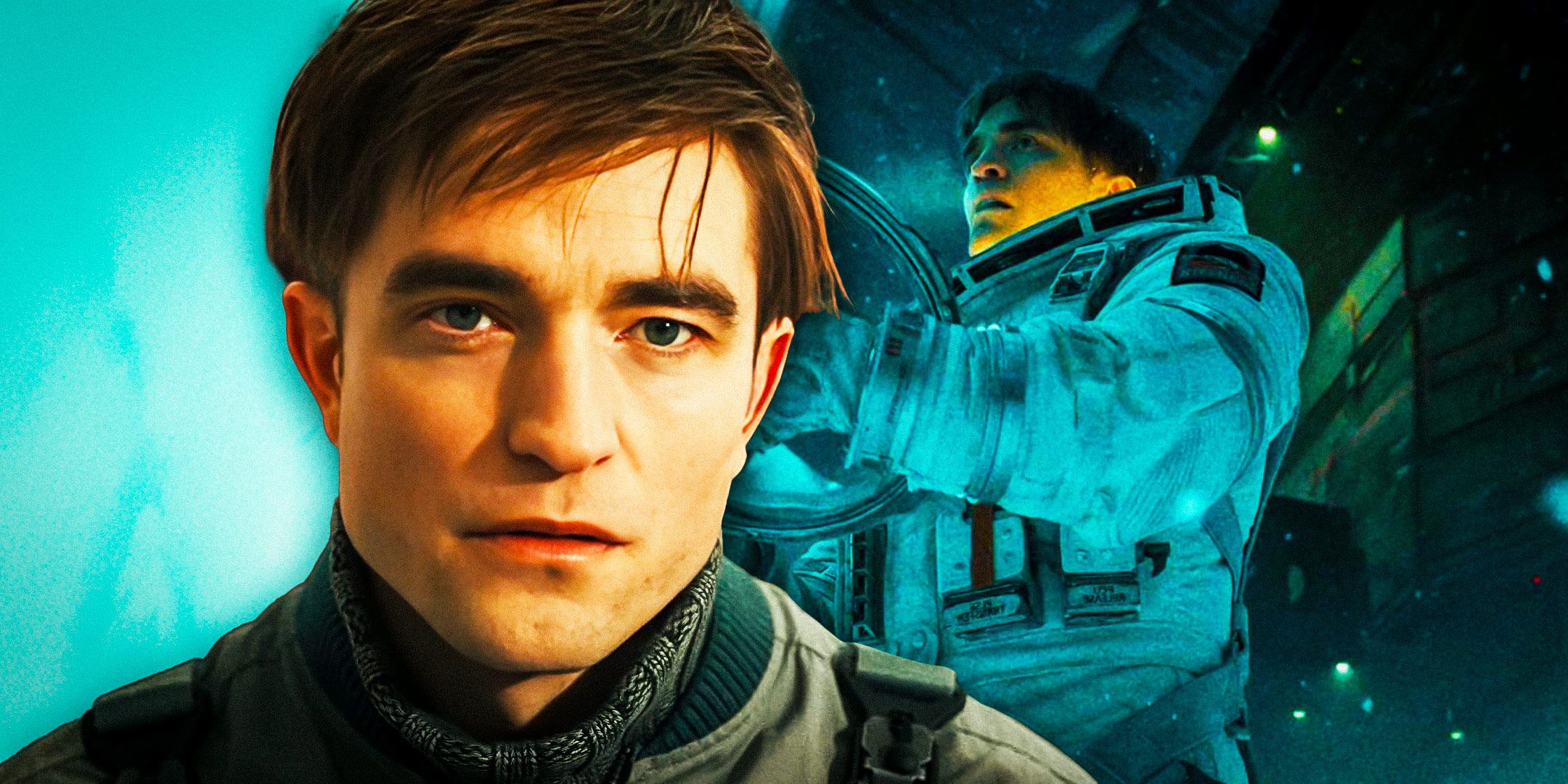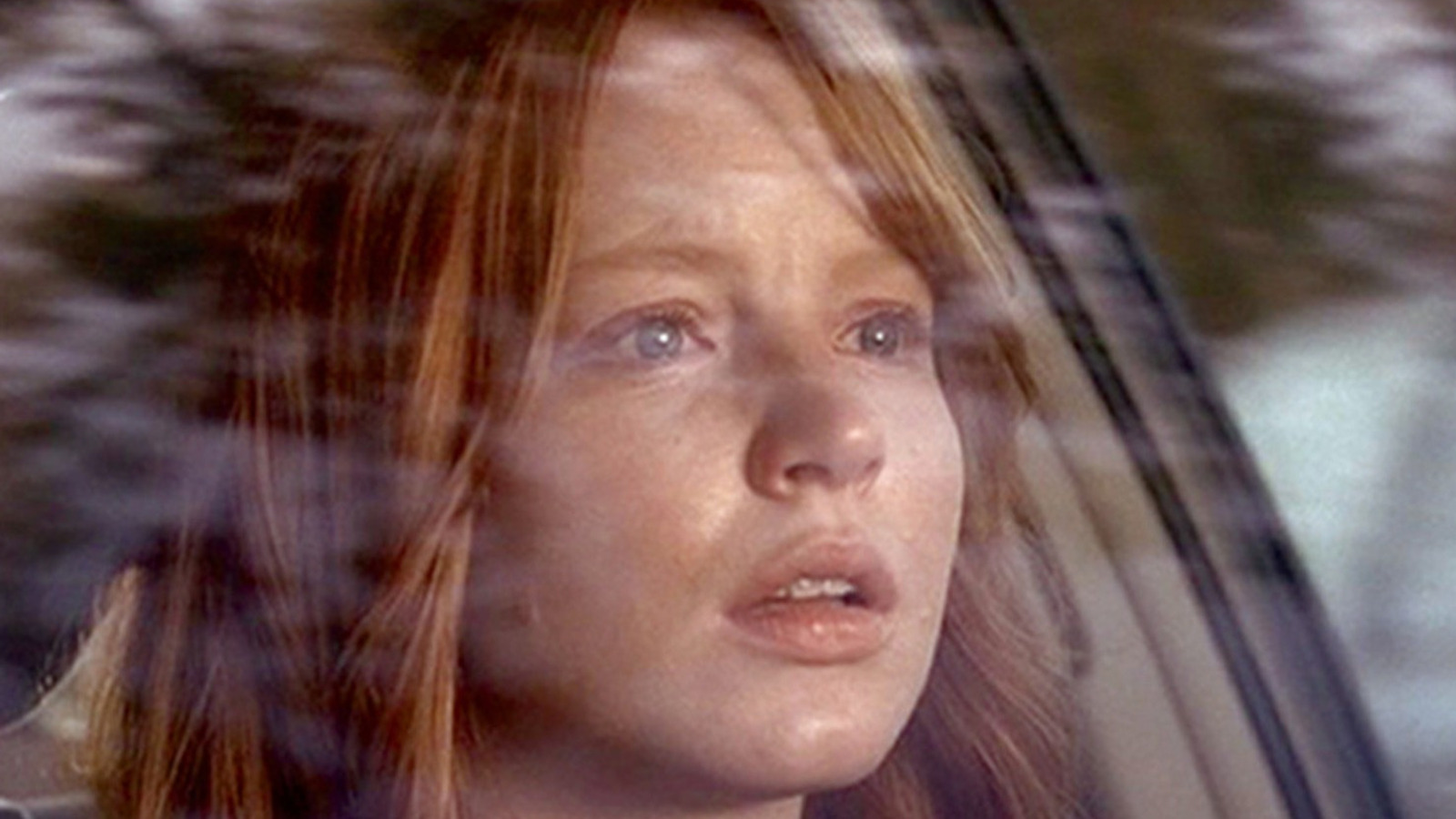For anyone who has sat through the emotional final moments of "90 Feet from Home," a few questions probably linger, sort of like a curveball that just hangs in the air a little too long. This particular film really gets into the deep personal struggles of a former baseball player, a man who finds himself back in the place where some of his earliest hurts took root. It's a story that explores the hard work of facing up to past pains, a kind of journey back to a starting point, if you will, to try and mend what has been broken for a very long time. As the credits start to roll, many people are left wondering exactly what happened and, perhaps more importantly, what it all truly means for the folks we’ve been watching.
The movie, you see, spends quite a bit of time building up to its big finish, showing us bits and pieces of a life that was, in some respects, put on hold because of difficult experiences. It’s a tale that pulls at your heart, making you feel the weight of unspoken words and the desire for a kind of peace that seems just out of reach. When we get to the very end, there’s a sense that something big is about to happen, a moment where everything that’s been simmering beneath the surface finally comes to a head. It’s a moment that, frankly, asks a lot of its watchers, inviting them to think about what healing truly looks like.
So, what exactly unfolded in those last scenes? What was the real message the filmmakers wanted us to take away from the baseball diamond, or from the interactions between these troubled people? We’re going to walk through the conclusion of "90 Feet from Home," looking at the key events and what they might suggest about the futures of the characters involved. It’s an ending that, for some, offers a sense of closure, while for others, it might leave a few things open for personal thought, very much like a story that keeps on going in your head long after the screen goes dark.
- Crowd Scene Actor
- Christine And Paul Are Deciding
- Easter Eggs 2021 Jeep Wrangler
- Mariah Amato Age
- If You Were Born In 1965 How Old Are You In 2023
Table of Contents
- What Happens at the End of 90 Feet from Home?
- The Final Confrontation in 90 feet from home ending explained
- Shaping Futures in 90 feet from home ending explained
- How Do Characters Find Peace in 90 Feet from Home?
- What Does the Baseball Field Symbolize in 90 Feet from Home?
- The Weight of the Past in 90 feet from home ending explained
- What Does the Ending of 90 Feet from Home Really Mean?
- Lingering Thoughts on 90 feet from home ending explained
What Happens at the End of 90 Feet from Home?
The conclusion of "90 Feet from Home" brings a powerful and, to some, a rather stark moment of truth for the central figure. We see a man who has been carrying a significant burden for years, a weight that has affected his relationships and his very way of being in the world. The final scenes are not about a grand victory in a game, but rather about a personal stand, a kind of internal battle played out on a very public stage. It’s a moment where the main character, a former athlete whose career was cut short by unseen wounds, faces the individual responsible for much of his early life’s distress. This is, in a way, the whole point the movie has been building towards, a reckoning that feels both overdue and, perhaps, almost impossible to fully achieve. The tension that has been building throughout the story reaches a peak, and you can practically feel the air thicken with the weight of all that has gone unsaid and unresolved. It's a very raw display of human emotion, and it asks a lot of the audience to just sit with that feeling.
The film’s ending unfolds with a quiet intensity, moving away from loud theatrics to focus on the deeply personal exchange between the characters. The main character, whose journey back to his childhood town has been filled with a sort of quiet determination, finally comes face to face with the individual who caused him so much pain. This isn't a scene of physical violence, not really, but more a clash of wills and a confrontation of long-buried feelings. There’s a sense that the character is not just speaking words, but releasing years of pent-up hurt, a kind of pouring out of a full cup. It's a moment that, in some respects, feels like a deep breath after holding it for a very long time. The way this interaction is handled leaves a lot for the audience to think about, particularly concerning what true justice or healing might look like when dealing with past hurts that run so very deep. It’s a scene that tries to show the sheer difficulty of forgiving, or even just acknowledging, the damage done.
The ultimate outcome of this confrontation is not a simple, neat package tied with a bow. It’s more of an open-ended suggestion, a hint at what might come next rather than a definitive answer. The main character makes a choice, a very personal decision about how he will move forward, or if he can even move forward, given all that has happened. This choice, or perhaps this gesture, is meant to signify a turning point, a step towards reclaiming a part of himself that was lost or hidden away. It is a quiet act of courage, perhaps, or a deep desire for something better than what has been. The film leaves us with the feeling that while a significant hurdle has been faced, the path ahead is still somewhat uncertain, and that, too, is a very real part of dealing with big life challenges. It’s an ending that respects the ongoing nature of recovery, showing that some wounds take a very long time to truly mend, if they ever do completely.
- Castle Rock Co Elevation
- Lady Gaga Nipples
- Mink Hair Oil
- Best And Worst Careers For Virgos
- High End Party Celebrities
The Final Confrontation in 90 feet from home ending explained
The heart of the ending, really, revolves around the main character’s direct meeting with his abuser. This isn't a simple talk, you know, but a deeply charged exchange that has been years in the making. The movie builds this up with a slow burn, showing us how the past has continued to cast a long shadow over the character's adult life. When this moment finally arrives, it’s not about shouting or dramatic accusations, but rather a quiet, yet incredibly powerful, assertion of self. The character, after all this time, stands up for the younger version of himself, the one who couldn't speak out. This act, in a way, is a kind of silent scream, a release of all that emotional pressure that has been building up inside. It’s a very personal act of reclaiming one’s own story, and it’s done with a kind of quiet strength that really makes you feel the weight of the moment. The air around them seems to vibrate with the unsaid, and the audience is left to feel the raw emotion of a life’s worth of pain finally coming to a head.
What’s interesting about this final meeting is that it doesn’t necessarily offer a clean resolution for everyone involved. The abuser’s reaction, or lack thereof, is also a very important part of the scene, in some respects. It highlights the difficulty of getting closure from someone who may not acknowledge the harm they caused. For the main character, however, the act of speaking his truth, or simply being present and making his feelings known, is what holds the real significance. It’s a step towards personal liberation, a kind of breaking free from the chains of the past, even if the other person doesn't change. This particular confrontation serves as a kind of turning point, a moment where the character decides to stop being a victim of his history and starts to take charge of his own future. It’s a very human moment, showing that sometimes, the most important battles are fought within oneself, and the victory is simply in showing up and speaking your piece.
Shaping Futures in 90 feet from home ending explained
Following this intense meeting, the film shows us the main character making a choice about his path forward. This choice is not about grand gestures or immediate triumphs, but rather a quiet commitment to building a life that is, perhaps, more peaceful and more authentic. It suggests a future where the character might finally be able to shed some of the heavy emotional baggage he has carried for so long. This part of the ending is, in a way, a hopeful sign, hinting at the possibility of healing and finding a new kind of purpose. It’s about picking up the pieces and deciding to arrange them in a different, healthier pattern. The movie doesn't spell out every detail of his future, which, you know, is pretty typical for films that deal with such deep personal issues. Instead, it offers a glimpse, a kind of quiet promise that things can, in fact, get better, or at least be different from what they were.
The implications of this ending suggest that the character is now, more or less, in a position to shape his own destiny. He has confronted the source of his pain, and while the wounds may not be completely gone, the act of facing them head-on has changed something fundamental within him. This means he might be able to forge stronger connections with others, to pursue passions that were once out of reach, or simply to live with a greater sense of freedom. It’s a subtle shift, to be sure, but one that carries a lot of weight for anyone who has followed his story. The film leaves us with a feeling that a new chapter has begun, one where the character has the chance to write a much different story for himself, one that is, arguably, filled with more light than shadow. It’s a testament to the idea that even after the deepest hurts, there is always the possibility of moving towards a better tomorrow, just a little at a time.
How Do Characters Find Peace in 90 Feet from Home?
The question of how characters find peace in "90 Feet from Home" is, you know, a central one, and the ending offers some thought-provoking answers. For the main character, peace isn't found in a sudden burst of happiness or a magical disappearance of all his past troubles. Rather, it seems to be a more gradual process, rooted in the act of confronting his history and making a conscious decision to break free from its hold. His peace comes, in a way, from taking back his own power, from standing up to the very thing that tried to diminish him. It’s a quiet kind of victory, not one that gets cheered from the stands, but one that is deeply felt within. This approach to finding peace is, frankly, very true to life, showing that healing often involves a lot of hard work and many small steps, rather than one big leap. It suggests that peace is less about forgetting and more about learning to live with, and move past, the difficulties.
The film also hints that peace for other characters might come from their own forms of acknowledgment or support. For those around the main character who have witnessed his struggles, their peace might come from seeing him take these important steps, or from their own acts of understanding and compassion. It’s a story that suggests that individual healing is often tied to the healing of relationships, and that support from loved ones can play a really big part in that journey. The ending, in some respects, shows that peace is a shared endeavor, a kind of collective sigh of relief when someone you care about starts to find their way. It’s about the quiet moments of connection, the unspoken agreements to be there for one another, and the shared hope for a brighter future. This sense of shared burden and shared hope is, perhaps, what truly allows for a kind of collective peace to begin to settle.
Ultimately, the peace found in "90 Feet from Home" is not about erasing the past, but about integrating it into a new understanding of self and life. It’s about accepting what happened, without letting it define every single aspect of one's existence. The characters, especially the main one, seem to find a measure of peace by deciding to live authentically, by pursuing what truly matters to them, and by letting go of the need for external validation or retribution. This quiet resolution is, in a way, more powerful than any dramatic confrontation, because it speaks to the enduring human capacity for resilience and the deep desire for a calm heart. It’s a message that resonates, suggesting that peace is an internal state, cultivated through courageous choices and a willingness to face uncomfortable truths, rather than an external reward.
What Does the Baseball Field Symbolize in 90 Feet from Home?
The baseball field in "90 Feet from Home" is, in some respects, far more than just a place where a game is played; it acts as a very powerful symbol throughout the entire story, especially as we get to the ending. For the main character, it represents a place of both past glory and deep, deep pain. It’s where his dreams as a young player were nurtured, but also where the shadows of his personal life started to creep in and, you know, really affect everything. The distance of 90 feet, specifically, the space between the bases, can be seen as a metaphor for the journey he has to make to get back to himself, or to reach a place of safety and healing. It’s a physical representation of the emotional distance he needs to cover to escape the past and, perhaps, to finally get home in a metaphorical sense. This field is, in a way, a crucible for his emotions, a place where all his unresolved feelings come to the
Related Resources:



Detail Author:
- Name : Natalia Sporer
- Username : dickens.rolando
- Email : dskiles@vandervort.com
- Birthdate : 1973-10-10
- Address : 9609 Anita Wells North Claire, CT 02492
- Phone : +1-425-231-3542
- Company : Daniel Inc
- Job : Personnel Recruiter
- Bio : Ut id perspiciatis occaecati eligendi amet alias enim. Inventore consequatur tempora tempora ullam. Provident est atque fugit dicta maxime. Assumenda ea reiciendis ad provident.
Socials
tiktok:
- url : https://tiktok.com/@ahoppe
- username : ahoppe
- bio : Ad placeat distinctio suscipit veritatis.
- followers : 3486
- following : 239
facebook:
- url : https://facebook.com/hoppea
- username : hoppea
- bio : Deleniti ut omnis error iure tenetur suscipit.
- followers : 1263
- following : 1729